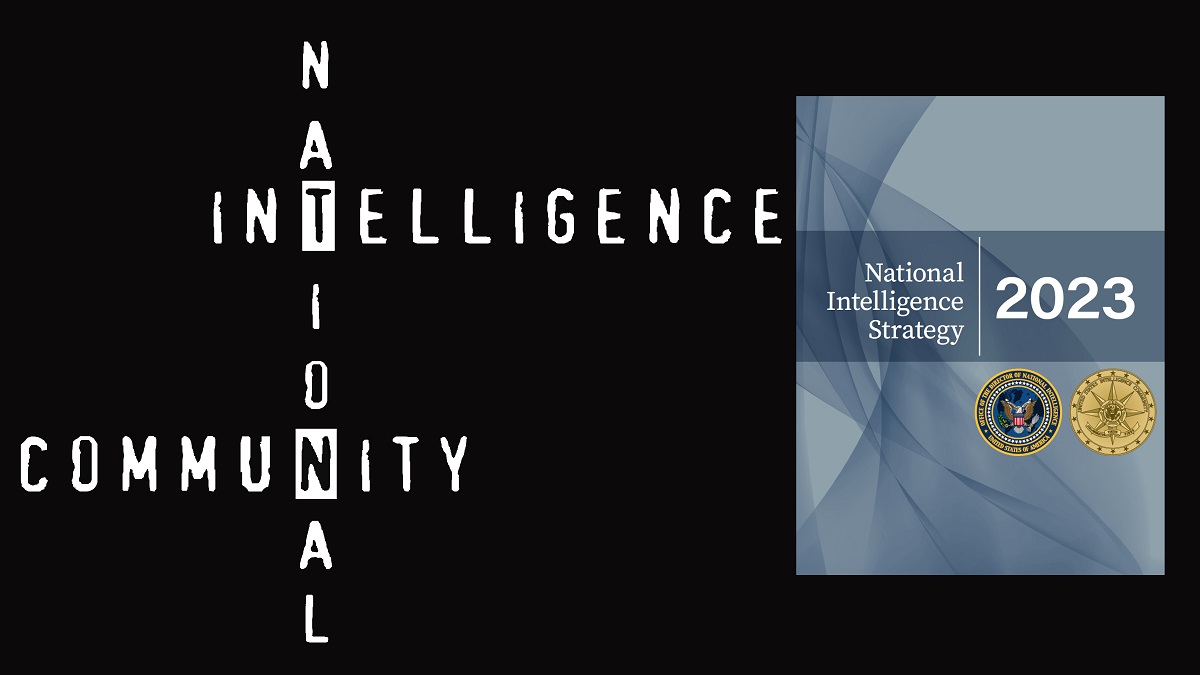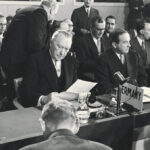
Regular listeners might remember previous episodes in which we looked at the 2022 National Security Strategy and the 2022 National Defense Strategy. In this episode, we continue the examination of strategic-level documents with a review of the 2023 National Intelligence Strategy. Genevieve Lester is in the studio, but this time she’s the guest with podcast host Ron Granieri. Their conversation dissects the document that is the Director of National Intelligence’s strategic direction for the Intelligence Community (IC) for the next four years. Ideally, it aligns IC priorities with other national strategies and supports the IC’s mission to provide timely, insightful, objective, and relevant intelligence and support to inform national security decisions and to protect the United States and its interests. But what can you say about an institution whose business is keeping secrets in a document that is shared with the world? Gen and Ron share their thoughts about the language used, the specificity and vagueness, and the overall message the document conveys.
These are aspirational documents. This is what we are aiming for; these are our goals. These are our strategic goals, our strategic focus. Do we actually intend to meet them? Is that actually part of the purpose of these documents or not? And I leave that as a question.
Podcast: Download
Subscribe: Apple Podcasts | Spotify | Amazon Music | Android | Pandora | iHeartRadio | Blubrry | Podchaser | Podcast Index | TuneIn | Deezer | Youtube Music | RSS | Subscribe to A Better Peace: The War Room Podcast
Genevieve Lester is the DeSerio Chair of Strategic Intelligence at the U.S. Army War College. She is also an Associate Fellow for Strategic Intelligence at the International Institute for Strategic Studies. She holds a PhD and an MA in Political Science from the University Of California, Berkeley and an MA in International Relations and International Economics from the Johns Hopkins School of Advanced International Studies (SAIS) and a BA in History from Carlton College.
Ron Granieri is Professor of History and the Chair of the Department of National Security and Strategy at the U.S. Army War College and the Editor of A BETTER PEACE.
The views expressed in this presentation are those of the speakers and do not necessarily reflect those of the U.S. Army War College, U.S. Army, or Department of Defense.
Photo Credit: Zelda





WITH THE ACCESSION OF SAUDI ARABIA&UAE TO BRICS+ THE END/DEATH OF THE PETRODOLLAR IS A MATTER OF TIME. WITH THAT THE US DOLLAR WILL LOSE ITS RESERVE CURRENCY STATUS. ONCE THAT HAPPENS JAPAN WILL SWITCH SIDES AND JOIN CHINA(CHINA IS JAPANS NUMBER ONE TRADING PARTNER). WAR PLANNING/GAMING SHOULD PIT THE ANGLOSPHERE(US UK AUSTRALIA CANADA NEW ZEALAND)AGAINST GREATER EAST ASIA(CHINA JAPAN SKOREA TAIWAN)
As to the new National Intelligence Strategy (and the National Security Strategy, the National Defense Strategy, etc., also for that matter), are there places therein which significantly address the “further modernization” challenges that many nations seem to be facing today? These being, the clash between:
a. The more-urban dwelling, the more-secular, the more-education and the more-modern (these folks being more “progressive?”) populations of the states and societies of the world (they produce much more of a nation’s GDP?) — who may be more likely to welcome necessary (for national security purposes?) political, economic, social and/or value change. And:
b. The more-rural dwelling, the more-religious, the less-educated and the less-modern (these folks are more “conservative?”) populations of the states and societies of the world (they produce much less of nation’s GDP?) — who may be less likely to welcome necessary (for national security purposes?) political, economic, social and/or value change. (For example, in both Afghanistan, and in the U.S./the West of late, we see this such latter trend?)
Note: If this such “clash” conflict environment is considered to both valid and important, then should it not “rate” a much more lengthy and vibrant discussion — in our NSS, in our NDS, in our NIC, etc.?
My thoughts and questions above possibly stated another way:
1. If many developed nation governments today (to include these such governments in the U.S./the West) are involved — both in their own home countries and indeed elsewhere/abroad — in what might be called “further modernization” projects; that is, in transforming the states and societies of the world — to include their own — so that same might be made to better interact with, better provide for and better benefit from such things as capitalism, markets and trade (requires that certain political, economic, social and/or value “changes” be made in these such countries; which, of necessity, will divest certain currently privileged individuals and groups of a least some significant degree of their current power, influence, control, status, privilege, safety, security, etc.),
2. And if, accordingly, these governments — as per their such common “further modernization” projects — are now being forced to confront various state and non-state entities (these being found both at home and abroad) who, thus commonly threatened, fight back using such things as (a) “resistance and reversal warfare” and (b) “traditional values” employed in their such “resistance and reversal warfare” causes,
3. Then, in circumstances such these, how should these such “further modernization”-motivated and determined governments organize, order, orient, etc., their Intelligence Communities’ operations and strategies; these, so as to (a) achieve their such “achieve revolutionary change both at home and abroad in the name of capitalism, markets and trade” “further modernization” objectives; this, (b) in the face of those individuals and groups — and those states and societies — who are (see my item no. 2 above) resisting/seeking to reverse these such specific efforts?